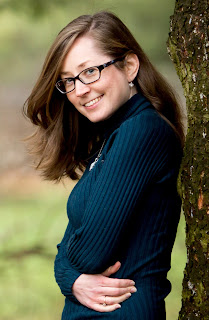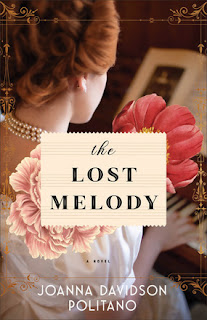Joanna Davidson Politano
When did you start writing?
The first books I remember writing were in grade school, when it drove me nuts that kids were bullied but I was too quiet to do anything about it. So, I wrote stories on stapled half-papers about the bullied kids with super powers and the bullies getting a little justice. It made me feel better, anyway! Then those stories got around the class and even though no one knew who had written them, it caused some waves!
Who were/are two of your favorite authors?
Daphne Du Maurier has been a long-standing favorite in gothic suspense, and a recent favorite is Mimi Matthews. Du Maurier opened my mind to the possibility of different types of stories that included all my favorite things—abandoned old houses, atmospheric tension, and surprises. I think that absolutely inflamed my desire to write, knowing that genre was out there.
What point in your writing career did you feel like you had gone from amateur to pro?
When I decided to go firmly into amateur status! I shelved the idea of writing for publication when my first baby was born, thinking it wasn’t a good time, but all that really accomplished was freeing me up to write the sort of stories I loved most. No one will ever read this, I told myself, so it doesn’t matter if it follows any genre rules, is any certain length, or looks any particular way. Out came the books that I enjoyed most—and when the writer enjoys a project, often so do readers.
What do you look for in choosing a setting for your book?
I always aim to make my setting a character in itself, at least a little bit, so it has to be memorable. Atmospheric. Rich with meaning, maybe symbolism. And more than anything, the setting has to intrigue me. It makes the story so much more fun.
What steps if any are involved in research for your book?
I start out very research heavy, especially when tackling a topic, I’m less familiar with—ballet, for example. I aim to read books written during the period I’m researching for the most authentic flavor of the times. I want to hear first-hand about the people and mindsets so I can sink into it myself. I even read fiction surrounding my topic or time period. The story takes shape from the research, then as I go into the drafting phase, I keep many, many books open around me to check on little details as I go.
In writing your new book, what do you feel makes it stand out?
The Lost Melody has such a heavy setting—the Victorian asylums. Yet I made it a point to combine that setting with music, which is one of the loveliest aspects of this world to me. So, you have a rather dark setting that’s interrupted by the beauty and light of music. That’s symbolic of the whole book, too—light breaking into darkness. Music breaking into the dark places of a person’s mind. Music therapy is also such a fun aspect of this book, and I’ve never seen that in a historical novel before—the origins of it as well as a little of the science behind it. I truly loved researching and including that.
In your new book, what would you like the reader to feel and walk away with?
There was a backdrop of music as I wrote this book—sometimes on my radio, sometimes just hovering in the back of my mind. There was a strong sense of rhythm and order throughout the drafting stage, and I hope readers can get a sense of that too. Music threads through every chapter and shows up in such surprising ways.
What is the best writing advice you have received so far?
To write organically. If you are not surprised, it’ll be hard to evoke that response in readers! Allow your plot to deviate from whatever you had in mind, if there’s something that better serves the story. Go back and read and reread when you start writing every day, so you have a sense of the story and a natural path for the narrative to continue. The more you let the story take over, the better and stronger it’ll be.
What is the worst?
Anyone that ever said, “a story MUST have, or MUST be....” Exceptions make the memorable stories!
What is your schedule for writing?
As a stay-at-home and homeschooling mom, I typically keep my writing to when my children sleep. I wake up before them if I can, and that’s when I research. I write in the afternoon when my baby sleeps and older kids are doing independent work, then I catch up on emails and indulge in social media when they’re in bed in the evenings. Sunday, however, I reserve all free time for fun reading. That’s always a much-needed rest day.
What do you do if you get stumped?
I stop and play with my kids, get silly and do kid things, or take walks. I often message back and forth with a writing friend or two and they can often offer suggestions. Just talking through it aloud to them sometimes frees me up. In the moment, though, I pause and connect with God and try to get a sense of what he has in mind for the story. Often, being stumped just means I need to turn some corner in my thinking—try something new or go a different direction.
Did you or do you make any sacrifices to be a writer?
Oh yes! Most of my free time goes to writing, and honestly, most of my free brainpower does too. Even when I’m playing with my kids or teaching a history lesson, the creative wheels are pinning, and I jot down ideas in a notebook. I love this backdrop to my life very much, but at times it’s a little draining!
Did you choose your genre, or did it choose you?
I first chose a lot of other genres in my pursuit of publication, but once I gave up on the idea of publishing, I discovered the genre I loved more than any! When I wasn’t trying to do or be or say anything in particular, just enjoy myself, I found the most natural type of story for my heart, and it fit like Cinderella’s glass shoe. Just right.
What is the best way you found to market your book?
Authors usually aren’t sure which effort leads to book sales but having “cheerleader” friends seems to have paid off more than anything. I have absolutely wonderful friends—local reader friends and other author buddies—who get excited about my stories and spread the word to other readers. I’m eternally grateful for all those word of mouth recommendations.
Did you actively build a network of readers and if so, how?
A lot of my first readers came from other authors telling their readers about my books. I set up a launch team for my first book when several sweet authors told their readers about my books, and they were willing to try them. I don’t know how people do any of the writing process without a very kind network of other writers who all get behind each other!
What advice would you like to give new authors that would help them?
Based on my writing journey, I’d say enjoy yourself FIRST and foremost, before you expect anyone else to enjoy your stories. They should be fun for you, the writer, and trust me, that enthusiasm is absolutely contagious. And at the end of the day, even if you don’t get published, you are still enjoying the process either way. Also, along those lines, let the story tell itself. Don’t shoe-horn plot points or character actions or moralizing lessons in where they don’t want to be.
Joanna Davidson Politano is the award-winning author of Lady
Jayne Disappears, A Rumored Fortune, Finding Lady Enderly, The Love Note, and A Midnight Dance. She loves tales that capture the colorful, exquisite details in ordinary lives and is eager to hear anyone’s story. She lives with her husband and their children in a house in the woods near Lake Michigan.
You can find her online at www.jdpstories.com.



No comments:
Post a Comment